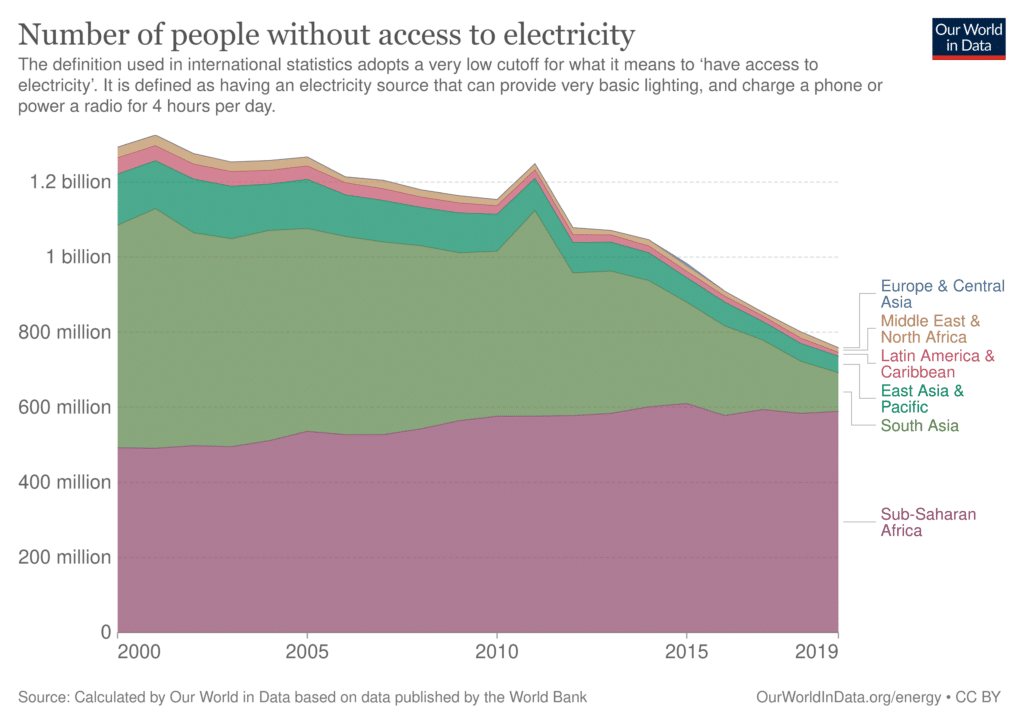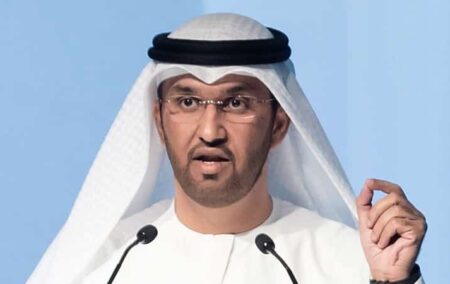A man with both oil & gas and renewable energy interests would make the perfect president-designate for the next UN climate summit, despite green outrage.
The 20-year old poor little rich girl who mistook her depression for the belief that her future was stolen, and has been travelling around the world since the age of 15 raging at world leaders about how they dare run the world in ways of which she does not approve, sat on a panel at the World Economic Forum in Davos and called it ‘completely ridiculous’.
By the rules of intuitive logic, anything Greta Thunberg finds ‘completely ridiculous’ must have a whiff of sanity about it, so what could have sparked her disapproval this time?
‘Lobbyists have been influencing these conferences since forever, and this just puts a very clear face to it…’ she whined, in reference to the decision by the United Arab Emirates (UAE), host of this year’s annual climate jamboree, COP28, to appoint Sultan Al Jaber as the conference’s president.
His Excellency Dr Sultan Ahmed Al Jaber, as he is styled, is a member of the UAE Federal Cabinet, Minister of Industry and Advanced Technology, the UAE’s special envoy on climate change, Group CEO of the Abu Dhabi National Oil Company (ADNOC) and Chairman of renewable energy investment company Masdar.
In Thunberg’s defence, while speaking on the panel at Davos she said that it was ‘absurd’ that the world appeared to be listening to Davos delegates. We can safely ignore her, then.
Outraged
But she isn’t the only one who is outraged.
‘This appointment goes beyond putting the fox in charge of the henhouse,’ Teresa Anderson, global lead on climate justice at the development charity ActionAid, told CNBC.
Tasneem Essop, executive director of Climate Action Network International, told The Guardian: ‘If he does not step down as CEO, it will be tantamount to a full-scale capture of the UN climate talks by a petrostate national oil company and its associated fossil fuel lobbyists.’
Alex Rafalowicz, executive director of the Fossil Fuel Non-Proliferation Treaty Initiative lobby group, called it ‘an act of provocation’.
The UAE, to its credit, is having none of it, and said Al Jaber wouldn’t be resigning any positions.
Here’s a dose of reality for the climate activists who want an immediate end to fossil fuel energy. More than 75% of the 759 million people worldwide who still do not have access to electricity live not in the rich world of the activist elites, but in sub-Saharan Africa.

The rich countries are themselves increasing their consumption of fossil fuels, as they realise that the rush to renewables is simply not delivering the affordable and abundant energy they need.
Coal consumption for 2022 is estimated to have set a new all-time high, thanks especially to increased imports by Europe from countries like South Africa.
Rich countries, including the United Kingdom, Norway and the US, are ramping up oil and gas drilling, in part to make up for lost imports from Russia.
Hypocritical
These are the same hypocritical countries that are bribing developing countries to hasten their transition from fossil fuels to renewable energy.
Worldwide, fully 77% of all energy is derived from coal, oil or natural gas.

That is a lot of rug the renewable activists are proposing to rip from under the world’s feet. Were they to succeed, the results would be catastrophic.
It would gravely endanger the development of poor countries. As I have often argued, contrary to Greta’s abhorrence of economic growth, it is economic prosperity that is associated with a cleaner environment: keep countries poor, and you’ll guarantee continued environmental degradation.
Transitioning to a clean-energy world is desirable, and it will happen (although I believe nuclear energy will dominate the energy mix, as opposed to inefficient hydrogen, wind or solar). It cannot be forced to happen too fast, however. That will make everything worse.
This is why Al Jaber is a great choice as president of COP28 of the United Nations Framework Convention on Climate Change (UN FCCC).
Pragmatist
He is not opposed to lower emissions. On the contrary: he is on record as saying that the world is ‘way off track’ if it is to have any hope of meeting ambitious climate targets.
He is a pragmatist, however, and recognises that divesting from fossil fuels too quickly will likely have negative consequences. At the Atlantic Council Global Energy Forum on 14 January 2023, Al Jaber spoke of the need to focus on holding back emissions, not progress.
Don’t take my word for it. Read Al Jaber in his own words: ‘What’s needed is a realistic new strategy that is practical, pro-growth, and pro-climate. … Energy transitions take time. While wind and solar accounted for the vast majority of all new power-generating capacity in 2021, they still comprise only 4% of today’s energy mix. As the world’s energy needs grow ever larger, maintaining global energy security will require oil and gas to remain a significant part of the mix for decades to come.’
It is futile to believe that the world’s wealthy elites will give up their obsession with renewable energy, or their millenarian belief about a coming climate reckoning. To them, Thunberg is a saint and a hero.
Best we can hope for
The best we can hope for, especially down here in Africa, where the agenda is headed by grinding poverty, unemployment, energy shortages and the basic needs of living, is that the approach to the energy transition be tempered with a healthy dose of pragmatism and sense.
In the person of Al Jaber, who has interests in both renewables and fossil fuels, we might get such a pragmatic approach, in which all stakeholders are heard and accommodated.
Let’s hope the UN FCCC and the UAE are not cowed by the powerful and extremely well-funded environmental lobby into changing course.
To date, the endless series of annual climate conferences have achieved little other than endangering global energy security. For that to change, new leadership is needed, and Al Jaber would to be a good start.
[Image: African Energy Chamber]
The views of the writer are not necessarily the views of the Daily Friend or the IRR
If you like what you have just read, support the Daily Friend

